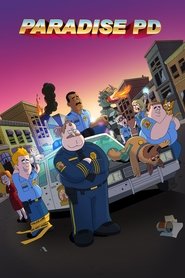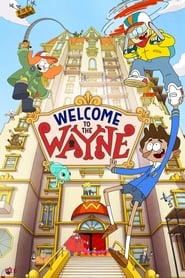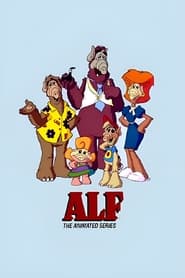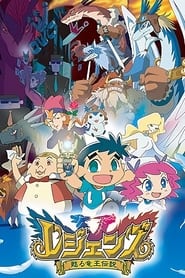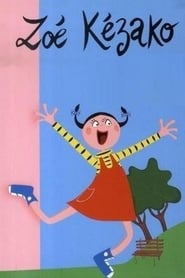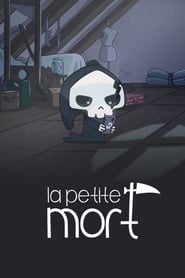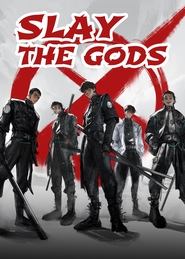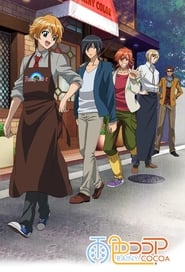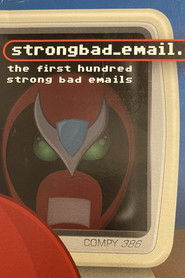Best Animation TV Series - Page 89
-
Farmagia
2025
star 7.9In Felicidad, farmers known as the Farmagia raise monsters under the peaceful rule of the Magus Diluculum. After the Magus passes, a power struggle erupts among forces using monsters to seize control. In the town of Centvelt, Farmagia Ten and his friends band together against the despotic new ruler, Glaza. Ten, his friends, and their home-grown monsters must stay strong to defend their freedom. -
Girls und Panzer
2012
star 6.8In this world, Sensha-do (戦車道), the art of tank-combat, is a traditional Japanese martial art for girls. Miho, a girl who just transferred into the Ōrai Girls' Academy in Ibaraki Prefecture, has been ordered by the academy's student council chairperson to join the school team and compete in the national Sensha-do championships. -
Lord El-Melloi II's Case Files {Rail Zeppelin} Grace note
2019
star 7.1Waver Velvet – The boy who fought side by side with the King of Conquerors - Iskandar - during the Fourth Holy Grail War in Fate/Zero. Time has passed, and the mature Waver has now adopted the name of Lord El-Melloi. As Lord El-Melloi II, he challenges numerous magical and mystical cases in the Clock Tower, the mecca of all mages... -
Paradise PD
2018
star 7.2An eager young rookie joins the ragtag small-town police force led by his dad as they bumble, squabble and snort their way through a big drug case. -
Welcome to the Wayne
2018
star 7.1The Wayne is a high-rise apartment building in New York City. Ansi, Olly and his sister Saraline are friends who call themselves Team Timber, dedicated to exploring the ever-growing mysteries of “Wayne Phenomena” in the building they call home. All manner of action, adventure and otherworldly awesomeness could be right down the hall – or twelve floors up! You never know what’s in store behind a Wayne door -
ALF: The Animated Series
1987
star 6.2ALF: The Animated Series is an animated cartoon spin-off based on the live-action Sitcom series ALF. It premiered on September 26, 1987 and ran for 26 episodes. ALF Tales was a spinoff from the series that ran on the NBC television network on Saturdays from August 1988 to December 1989. The show had characters from that series play various characters from fairy tales. The fairy tale was usually altered for comedic effect in a manner relational to Fractured Fairy Tales. -
Legendz: Tale of the Dragon Kings
2004
star 7When a crafty toy company "Wiz" also known in this show as Dark Wiz Company, finds crystals with the faint DNA of monsters known as "Legendz" are found and made into a battle game. A young boy named Shu receives one these crystals known as "soul figures" from his father after a baseball game. Legendz rapidly became popular and more and more children played it. Wiz employeys start to track down Shu for his special soul figure, for his soul figure can revive real legendz not just the little kiddy digital images! How will Shu fight his way to victory and claim this soul figure as his own? -
Bill & Ted's Excellent Adventures
1990
star 6.6The misadventures of two time-travelling slackers as they travel into the distant past and future. -
Zoé Kézako
2004
star 7The adventures of a irresistible little girl, with stacks of humour and piles of energy. Just like all kids her age (7 and three quarters), Zoé asks herself many questions and is not always sure how to act in certain situations. Nothing could be more natural - after all, the one thing she doesn’t have is... experience! -
The Most Popular Girls in School
2011
star 8.5The Most Popular Girls in School (abbreviated MPGIS) is an American stop-motion animated comedy web series that debuted on YouTube on May 1, 2012. Created by Mark Cope and Carlo Moss, the series animates Barbie, Ken and other fashion dolls, usually with customized costumes and hairstyles, as various characters. MPGIS follows the exploits of a fictional high school cheerleading team in Overland Park, Kansas and their friends, family and enemies. Variety described the series as "Mean Girls meets South Park". -
Krapopolis
2023
star 7.5In mythical ancient Greece, a flawed family of humans, gods and monsters tries to run one of the world’s first cities without killing each other. -
Princess Connect! Re:Dive
2020
star 7In the beautiful land of Astraea where a gentle breeze blows, a young man named Yuuki awakens with no memory of his past. There he encounters a guide who has sworn to care for him—Kokkoro, a lovely swordswoman who's always feeling peckish—Pecorine, and a cat-eared sorceress with a prickly attitude—Karyl. Led by fate, these four come together to form the "Gourmet Guild." And so their adventure begins... -
Slay the Gods
2024
star 9.2"If the dark night comes to an end, I will stand in front of tens of thousands of people, slashing my sword into the abyss, staining the sky with blood!" Have you ever thought that monsters from ancient myths lurk under the bright neon cities? Have you ever thought that above the moon hanging high above the heads of the world, there are gods watching over the world? Have you ever thought that in the crowded modern cities, there are extraordinary people who walk the world in place of gods? -
Oraa Guzura Dado
1987
Oraa Guzura Dado
1987
This is a remake of the original black and white TV series created in 1967 with new colored drawings and the original dubbing. -
Capeta
2005
star 8Capeta is a Japanese sports manga and anime about kart racing by Masahito Soda. The manga won the Kodansha Manga Award for shōnen in 2005. The series consists of three separate arcs. The first is about Capeta's first experiences with kart racing at the age of 10. The next arc, which starts four years later, deals with Capeta trying to handle his growing financial issues due to the high cost involved in kart racing. The third is about Capeta trying to realize his dream of beating his rival and becoming a professional racer, venturing through into a more senior category: Formula Three. Both the anime and manga features numerous references and homages to Initial D and Best Motoring International references, as well as Formula One. In addition to this, there are many karting and racing references that not only add flesh to the story, but are also factual. -
Rainy Cocoa
2015
star 4.8Aoi’s soaked by a sudden rainstorm and takes shelter at Rainy Color, a cozy café where the warmth of the staff compliments the sweet hot cocoa he’s served. When he falls into a job at the café he feels like things are finally looking up— until Keiichi Iwase, the man he couldn’t help but stare at on the train, shows up. -
strongbad_email.exe
2001
strongbad_email.exe
2001
Strong Bad Email, frequently shortened to sbemail, features Strong Bad answering emails sent by real-world fans -
The King's Avatar
2017
star 7.8In the multiplayer online game Glory, Ye Xiu is regarded as a textbook and a top-tier pro-player. However, due to a myriad of reasons, he is kicked from the team. After leaving the pro scene, he finds work in an Internet Cafe as a manager. When Glory launches its tenth server, he throws himself in to the game once more. Possessing ten years of experience, the memories of his past, and an incomplete, self-made weapon, his return along the road to the summit begins!



